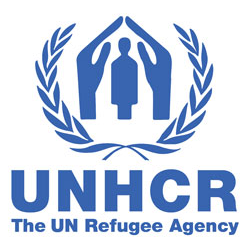Main Debates
Is environmentally induced migration “forced migration”? Does it matter if the environmental change is slow or abrupt, human-induced or the result of dominantly natural processes?
Should environmentally induced migrants qualify as refugees? Under what regime (the existing or a new one, specifically tailored to “environmentally induced refugees”)?
Main Points
Environmentally and climate change induced migration as forced migration
Access to complementary or alternative forms of international protection
UNHCR Documents
UNHCR, ‘Climate change, natural disasters and human displacement: a UNHCR perspective’, Policy Paper, August 14, 2009. Climate change, natural disasters and human displacement: a UNHCR perspective
Readings
Core
J. McAdam, ‘Climate Change, Forced Migration and International Law’, (Oxford: Oxford University Press, 2012), pp. 52-98.
R. Zetter, ‘Protecting People Displaced by Climate Change: some conceptual challenges’, in: J. McAdam (ed.). Climate Change and Displacement: multidisciplinary perspectives, (Oxford: Hart Publishing, 2010), pp. 131-150.
Extended
C. Cournil, ‘The Protection of “Environmental Refugees” in International Law’, in: É. Piguet, A. Pécoud, P. de Guchteneire (eds), ‘Migration and Climate Change’, (Cambridge: Cambridge University Press and UNESCO, 2011), pp. 359-387.
W. Kälin, ‘Conceptualizing Climate-Induced Displacement’, in J. McAdam (ed), Climate Change and Displacement: multidisciplinary perspectives, (Oxford: Hart Publishing, 2010), pp. 81-103.
L. Westra, ‘Environmental Justice & the Rights of Ecological Refugees’, (London: Earthscan, 2009), pp. 3-45.
Editor’s Note
Although environment induced migrants, including climate change induced migrants cannot be regarded as refugees under the 1951 Convention, refugee law developments may apply to this category of migrants. For instance, complementary protection might be available or the IDP Principles may be applied to environment induced migrants in the context of internal displacement.



